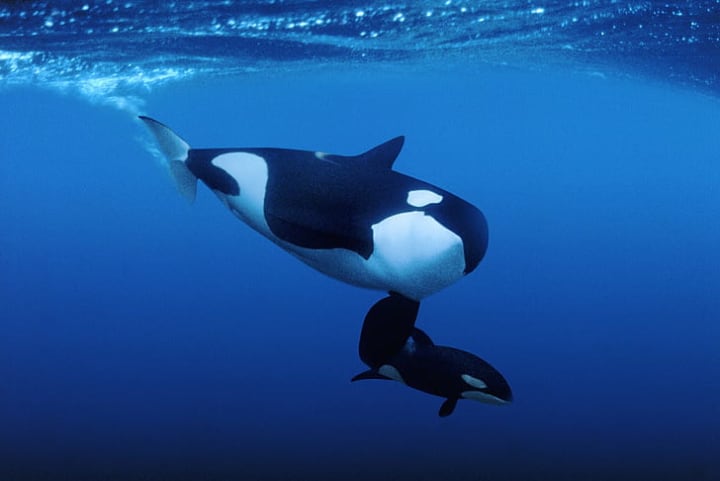Killer whale Go back To Her Home After 50 Years
Back To Home

The oldest killer whale in captivity may soon be returned to her home waters in the Pacific Northwest, more than 50 years after her capture
The idea of returning the oldest killer whale in captivity to her home waters in the Pacific Northwest after more than 50 years is certainly an interesting one. However, it would require a great deal of planning, preparation, and resources to ensure the safety and well-being of the whale during the transition and after her release.

While some experts argue that returning captive whales to their natural habitats is the right thing to do, others caution that it is not always the best option. The whale in question, known as "Granny," has spent most of her life in captivity and may not be equipped to survive in the wild.

Additionally, releasing a captive whale into the wild can have negative effects on the natural ecosystem, particularly if the whale has been living in captivity for an extended period of time. There is also a risk that the whale could carry diseases or other pathogens that could harm wild populations of killer whales.

Before making any decisions about returning Granny to the wild, careful consideration should be given to all of the potential risks and benefits. Alternatives such as retirement in a sea pen or continued care in captivity should also be considered. Ultimately, the decision should be based on what is in the best interest of the whale and the natural ecosystem.
About Orcas Or Killer Whale
The orca or killer whale is a toothed whale belonging to the oceanic dolphin family, of which it is the largest member.
- why are orcas called killer whales
Orcas are called "killer whales" because they were once observed by whalers hunting and killing other types of whales. The name "killer whale" stuck, even though orcas are actually the largest species of the dolphin family and not a whale.It is important to note, however, that orcas are not typically a threat to humans in the wild. In fact, there have been very few documented cases of wild orcas attacking humans. The name "killer whale" is more of a misnomer and reflects the fears and misunderstandings that humans have had about these majestic creatures over the years.
- How many babies do killer whales have in a lifetime
whales are mammals, their calves grow inside their mothers and are born through live births.Calving. Just one calf is born at a time. Calves are born in the water. Based on limited data collected from populations at SeaWorld and in zoological facilities, a female may bear a calf every 3 to 5 years.One of the most fascinating aspects of killer whale biology is that females, like humans, go into menopause in their early 40s. This has only been documented in four other species of cetaceans and no other mammals. This means that a Southern Resident female may only produce five calves during her reproductive lifetime.

- Size And Weight
It is the largest member of the dolphin family. The largest recorded male killer whale was 32 feet in length and weighed 22,000 pounds. The largest recorded female was 28 feet in length and weighed 16,500 pounds. Adult male killer whales are larger than females
- killer whale life timing
When factored in at birth, the average life expectancy of southern and northern resident killer whales is about 29 years for females and 17 years for males. If a killer whale survives the first six months, a female's average life expectancy is within the range of 46 to 50 years and a male's is 30 to 38 years





Comments
There are no comments for this story
Be the first to respond and start the conversation.